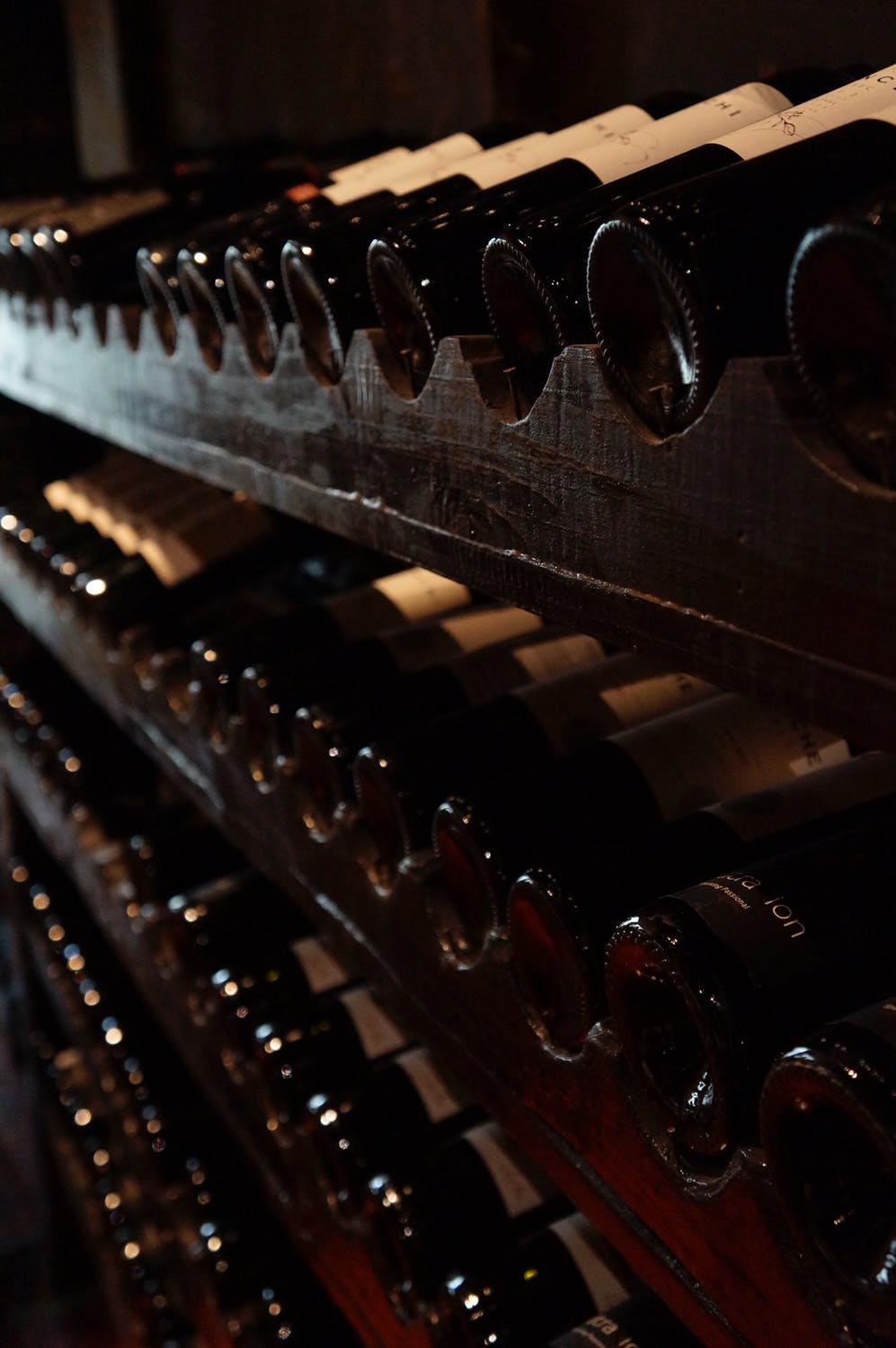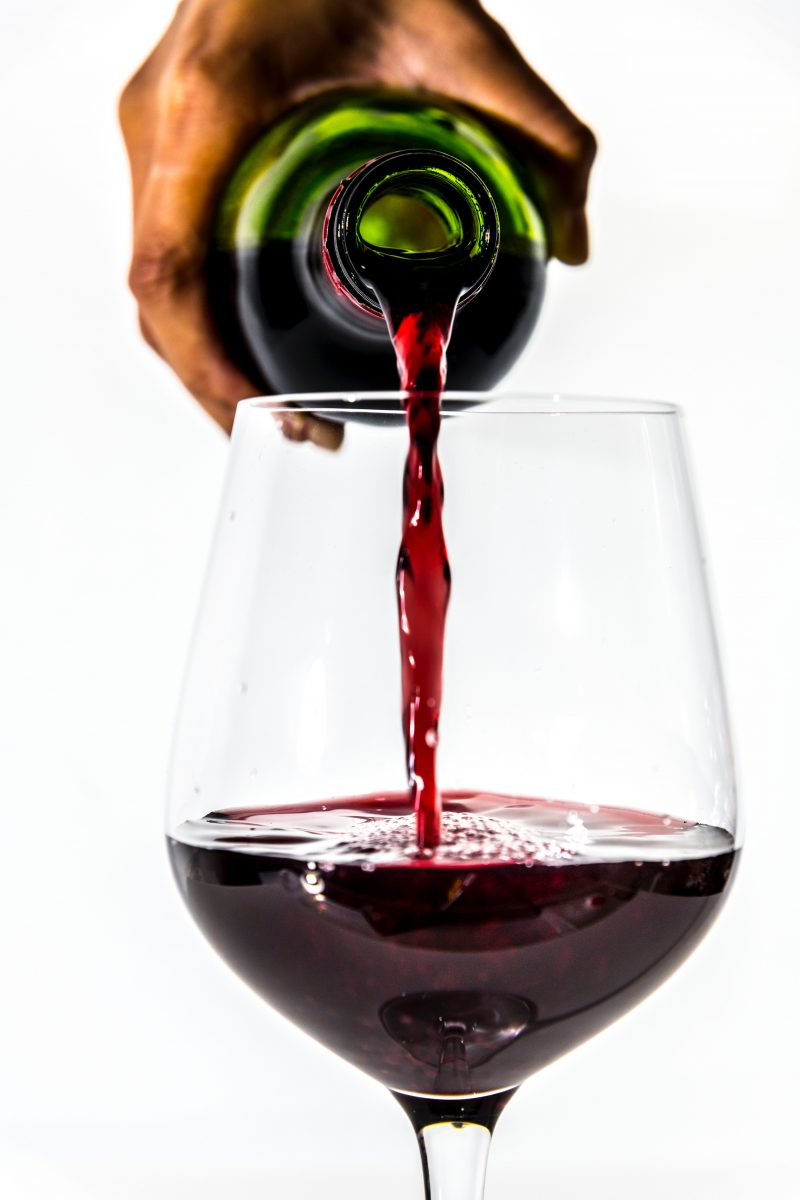


Keeping wine
Wine is a living beverage. It will evolve over the time it spends in its bottle.
Outside factors are an important influence on how well a wine develops.
For your wines to release all their aromas, when you open them up and taste them, you must keep them with the greatest of care. Several parameters need to be taken into account to achieve optimal keeping conditions.
Depending on how long the wine is to be laid down, the place where it is to be kept and aged in bottles, deserves special care.

The ideal cellar is underground.
The temperature must be maintained between 12 and 14°C (53.5 and 57°F) to keep wines for a long time. A regular high level of humidity between 70 and 80% will protect the corks from drying out, but any higher and the corks and labels will be damaged. If there is any light, then it should be soft and shaded.
Achieving all these conditions is not that easy, so certain types of insulation, air conditioning and bottle racks can be easily found, which will help create the right environment to lay your wine down in.
Quick tip: clean out your cellar regularly and do not leave anything that has an odour or may ferment (cheeses, fruit, vegetables, etc.), because wines corks are very susceptible to smells and parasites.
Keeping wines in appartments
Store your wine in a dark, cool place where the temperature does not vary much. Lay the bottles horizontally. If you want to invest in a wine refrigerator, decide first how long you want to keep your wine: for a long time or for shorter periods. The wine coolers that keep wines for longer periods are more costly and require regular humidity, temperature and ventilation checks.

This is THE key factor. The lowest workable humidity level is thought to be around 70%. A cellar that is not humid enough will cause the corks to dry out letting air enter the bottle, which will oxidise the wine and damage it. If the temperature is too high in the cellar, this phenomenon will be worsened. A hygrometer is therefore indispensable in any cellar. Note that it is better to have a cellar that is too damp than one that is too dry.
Quick tip: if your cellar is too dry, put a large bowl of sand in it that you wet regularly. If it is too damp and you want to protect your labels, put plastic film around your bottles. Last thing: never keep your wines in cartons!
The higher the temperature in a cellar, the faster the wine evolves, which affects its ageing and thus its bouquet and its aroma.
Abrupt temperature changes will do a lot of harm, but a gentle regular increase in temperature, like in spring or summer, will cause no damage up to 18°C (64.5°F).
Quick tip: try to obtain diffuse, stable and gradual heat, ideally from 10 to 13°C (50 to 55°F) plus or minus 2 or 3°C (3 to 5°F), which will allow your wine to evolve and mature normally.
Light spoils aromas. This is why wines are kept in darkness.
Quick tip: get rid of neon and any bright light from your cellar and leave it dark, by using low intensity bulbs that release little heat.
The bigger the format, the better the wine keeps. The ideal size is the magnum, which keeps wines fresher than in ordinary 75-cl bottle. Half bottles oxidise faster.
This depends mainly on the wine’s structure and the conditions it is being kept in.
A wine will age faster in a cellar at 15°C (59°F) that is a little dry than in a dark, damp cellar at 12°C (53.6°F). But this is also a question of taste! Saint-Émilion wines are often laid down for 10, 15 or 20 years, even more.
Bottles must be kept horizontally, so that the cork remains in contact with the wine and does not dry out. The humidity of the cork also enables exchanges to take place with the outside air. Movement and vibrations should be avoided, because they can contribute to wine spoiling. So there is no point in rotating the bottles in your cellar, even if this prevents deposit building up in old wines on the inside of the bottle.
Quick tip: put rubber pads under wine storage units and racks to prevent vibration. Saint-Émilion wines do not like to be shaken about. If your wine has been moved, leave it lying down to recover for a few days before drinking it.
Moulds exert very detrimental effects on cork. To prevent this, set up a system to gently circulate the air or use a ventilator in the wine storage area.
Quick tip: the best way to see if air is circulating sufficiently is to smell your corks. If they smell bad, you need to move the air around more.

A bottle of wine must be drunk in the hours following its opening. This is even more true if the wine is old. It is considered that a young wine can be kept once opened for 36 hours. Any longer than this and it faces oxidation.
The best thing is to recork the wine with its original cork and put it in the fridge. The cold will slow down the oxidation process.
Be sure to bring your wine back to 18°C (64.5°F), before drinking it!
To keep your opened wine longer than 36 hours, you can use a wine saver, which will pump the air out of the bottle. Your wine will then remain drinkable for three days.
Keeping your wine by injecting the neutral gas nitrogen into the bottle, which forms a protective layer between the wine and the oxygen in the air, can preserve the qualities of your wine for up to three weeks at most.